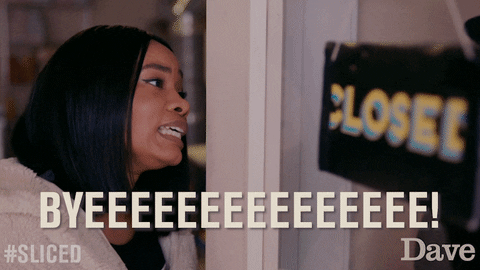Last week, someone got in touch to ask if I could send them my “hourly rates”.
This person, let’s call him Roman, was emailing me after I had completed an assignment for a company he had hired, which in turn had hired me. He was my client’s client.
Now he wanted to work with me directly, it seemed.
Working with Roman had been a frustrating process. He was one of the worst kinds of clients you can have as a creative. The type who think they know your craft better than you do; the type who ask for change after change right up until your deadline; the type who let other people not involved in the assignment weigh in on your draft because … well, why wouldn’t you?
I was nevertheless curious. Perhaps if we worked together directly and I was able to set my own terms – i.e. one or two rounds of edits and any later changes will cost you extra, buddy – things would go smoother.
So I asked Roman if he could tell me a little bit more about the work he needed help with.
He told me to have a look at their website. Let me illustrate the absurdity of that response by transposing this conversation to a retail setting.
Roman: How much does it cost?
Shopkeeper: How much does what cost?
Roman: How much does everything in your store cost?
Shopkeeper: …
Their website had plenty of copy. Short blurbs, taglines and longer, reported essays. Never mind that it was difficult for me to figure out how much input the client had provided and how much research I would have to do myself.
Needless to say, when I got that casual, we’re-too-cool-slash-busy-to-give-you-a-proper-brief, my interest in collaborating with Roman plummeted back to zero.
Still, I didn’t want to tell him that. At the same time, I didn’t want to labour over a detailed price proposal when Roman couldn’t be bothered to properly explain what he wanted from me. There was also the small detail that I have seen the light and rarely price my services by the hour anymore.
So I decided to recycle an old quote I had once worked out for another prospective client, adjusted it for inflation and sent it over.
What do you think happened next?
Crickets, my friends!
But it was my own fault, really. Because I foolishly ignored a big red flag. Namely that the first thing Roman brought up when reaching out was money.
In my nine years of freelancing I’ve learned that a client whose first or second question concerns my rates is never going to be a good fit for me. They are usually clients who:
Want to get work done cheaply, while I charge the kind of mid- to high-tier rates that allow me the time and space to deliver premium work. (True story: I was once turned down by a client who told me that they didn’t need the writing to be that … good)
Aren’t actually looking to commission me but want to benchmark freelancer rates.
It is a long-standing frustration of mine that, as a freelancer, you’re supposed to send over rates or quotes to anyone who reaches out to you. You might say that’s part of running a business, but I wish there was a way to weed out the clients whom I know will never be a good fit for me.
There also doesn’t seem to be a good way to handle these situations without coming off like a dick. What should I have told Roman? Nah, I don’t want to send you my rates because you can’t afford me?
I don’t want to slam doors shut immediately. Which is what would happen if I added a line to my website stating that my rates start at X. Because what if a company I really wanted to work with decided not to reach out to me because of that?
With that rant out of the way, let me end on a positive note.
My favourite collaborations are the ones where the work takes centre stage from the beginning. And that’s exactly what happened with one client recently. They contacted me over email, explained 👏🏽 the 👏🏽 assignment 👏🏽 and asked me to send them my rates. I suggested we jump on a quick call to talk more, which allowed me to ask them all my questions, get a sense of what they wanted to achieve, and suss out their working and collaboration style.
Reader, I’m glad to report that they accepted my quote and we’ll start working together shortly.
I would love to hear about your quote frustrations. What are the things that drive you up the wall? And do you have any tips to deal with unwanted quote requests?
Linda
What I’m watching, reading, listening to this week:
· If you haven’t embraced value-based pricing yet, read Tom Hirst’ fantastic Twitter thread on pricing freelance projects. Changed my life.
· If you do want to stick to hourly rates, you should really be adjusting your rates for inflation.
· I reread this comic about working with difficult clients sent to me by a graphic designer along time ago. It’s still very, very funny.






Long ago, I made the decsion to openly publish my rates on my website - I'm a writer, and my rates are in the mid-to-high end of the industry. After I published my rates, I noticed something unusual - I was getting much better quality leads. Potential clients knew what my rates were, and can infer the quality of my work (plus I have lots of portfolio samples, details of my exoertise, services, etc on my website.)
That has meant I do not spend any time on leads that go nowhere now - and it's been very liberting, letting me choose the interesting brands I want to work with. I do believe that the issue ti share your rates like this is based on a few areas: How you acquire new clients, the types of clients you attract as writers, their niches, your confidence in charging more, etc.
But, generally, I've found these self-selecting clients to be easier to work with because my rates ask people to treat my time seriously.
It's great to read your post and see how other people take a different apprach that's clearly very successful for them.
Great edition! My frustration with having rates requested is the number of clients who, after requesting I create a project rate proposal (which is no quick thing!), reveal that their budget is far below anything that would allow them to contract a freelancer. So I play the what's-your-rate-what's-your-budget dance. Sometimes I wonder if, as a fairly young/new freelancer, they expect that they can decide what I will be paid...